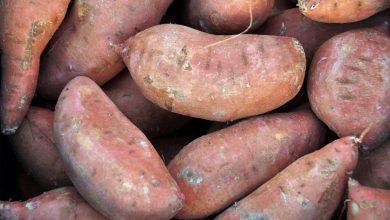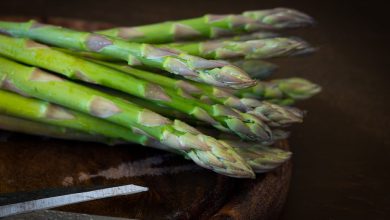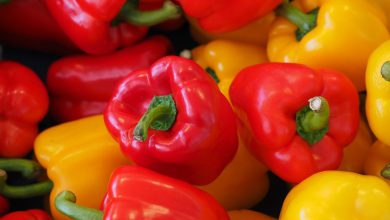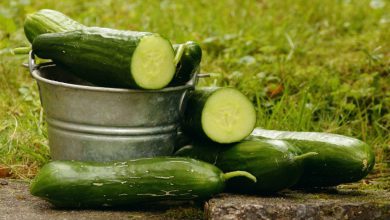Can Bearded Dragons Eat Cauliflower?
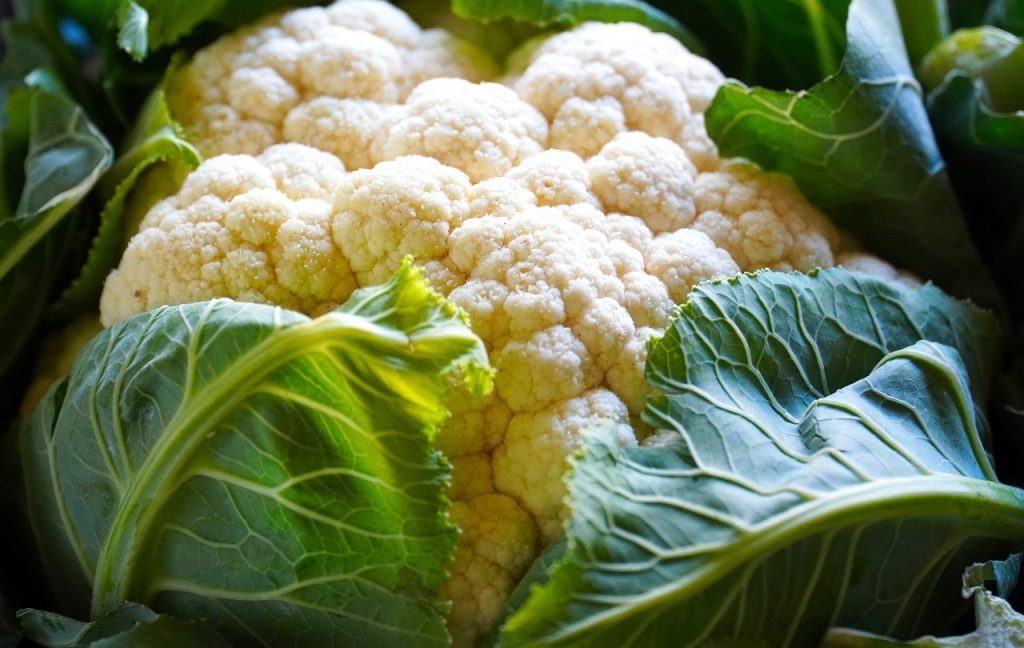
Who doesn’t love a delicious steaming-hot cauliflower cheese on a cold winter’s day? With cauliflowers so reasonably priced and so tasty, the real question is whether you can also give it to your bearded dragon?
Bearded dragons can eat cauliflower – though probably best leave off the cheese for your pet lizard.
Cauliflower benefits from being really low in glucose, so it doesn’t lead to sudden spikes in blood sugar. This, combined with all the nutrients it contains, makes it a great addition to your bearded dragon’s meal plan.
As with other foods for bearded dragons, however, variety is key. Cauliflower should therefore only represent a portion of the food you’re giving your beardie, rather than the sole ingredient.
Can Bearded Dragons Eat Cauliflower Leaves?
Bearded dragons can eat cauliflower leaves.
What you may not know is that cauliflowers and cabbages are very closely related. Seeing as cabbage leaves are such a great food for bearded dragons it logically follows that cauliflower leaves can also be fed.
However it is the heads of cauliflower that are particularly nutritious and can form a central part to your bearded dragon’s diet.

Should Cauliflower Be Raw or Cooked for Bearded Dragons?
Raw cauliflower is a great source of vitamins, minerals, and antioxidants. It’s also a good source of vitamin C and contains a number of phytochemicals that may help to protect against cancer and heart disease.
However, raw cauliflower is high in oxalic acid, which can cause problems if eaten in large quantities.
Cooked cauliflower is much safer for your bearded dragon to eat. It’s still packed with vitamin C but doesn’t contain as much oxalic acid as raw cauliflower does.
Can Bearded Dragons Eat Frozen Cauliflower?
While cauliflower can make a great addition to your bearded dragon’s diet, it is not without its problems.
Firstly, cauliflower is a winter vegetable that may not be available at all times of the year (or the price may rise significantly during the summer months).
Furthermore, cauliflower doesn’t tend to store well. If you buy a fresh cauliflower for your bearded dragon to eat you’re at risk of force-feeding yourself the remainder or throwing away a half-eaten cauliflower soon afterwards.
Frozen cauliflower is the perfect solution.
Bearded dragons will eat frozen cauliflower without problems.
Of course, it goes without saying that the cauliflower should be thoroughly defrosted before feeding it to your lizard. This is unlikely to be a problem due to the importance of cooking cauliflower before it is given to your beardie.
Simply take a few florets from the freezer, pop them into boiling water for a few minutes and add it to your bearded dragon’s food bowl. Of course, be sure to allow the cooked cauliflower to cool for a few minutes before feeding to avoid the risk of burns when it is eaten.
Can Bearded Dragons Eat Cauliflower Everyday?
Bearded dragons can eat cauliflower everyday.
Cauliflower heads are a very nutritious food source. Looking at the nutrient breakdown, which we’ll cover in this article shortly, they’re right up there as one of the best foods for bearded dragons.
On the other hand we should not forget the importance of a varied diet for bearded dragons. This means not just a reasonable amount of live feeder insects but also a range of different fruits and vegetables each week.
You certainly shouldn’t only feed cauliflower to your bearded dragon; it should form the basis of a more varied meal when fed.
For this reason, while it can be fed daily in moderation, many keepers opt to feed it just a couple of times a week, filling the gaps with other foods like cabbage or kale. This significantly lessens the chances of nutrient deficiencies building up over time.
Nutrients Found in Cauliflower
So far in this article we’ve simply skimmed over the surface of the nutrients found in cauliflower.
In this section we’re going to dig a little deeper into what chemical analysis of cauliflower tells us, and how this relates to the health of your bearded dragon.
The first interesting discovery was just how much protein cauliflower contains. Roughly a fifth of the calories found in cauliflower comes from protein. This therefore makes cauliflower a “high protein” plant for your beardie.
Protein is needed for growth and repair. While bearded dragons of all ages should receive sufficient protein in their diet this can be particularly important for rapidly-growing juveniles, or females that are expected to lay eggs soon.
However protein is really only a tiny part of the overall story.
Cauliflower is a good source of fiber, which can help to ease the transition of food through the gut.
Cauliflower is rich in all manner of beneficial minerals such as magnesium, phosphorus, potassium and manganese.
Vitamins-wise, cauliflower also has an impressive profile. It is known to contain healthy amounts of thiamin, riboflavin, niacin, B6, pantothenic acid, vitamin C and vitamin K. That’s a whole lot of goodness packed into such a tiny little package!
The only real weakness of cauliflower from the perspective of bearded dragon nutrition is the poor calcium level, which we’ll cover in more detail shortly. However to counteract this imbalance consider dusting cauliflower with a reptile-safe calcium supplement and/or combining it with higher-calcium foods like cabbage.
Calcium:Phosphorus Ratios in Cauliflower
According to nutritional analysis the calcium to phosphorus ratio of cauliflower is 1:1.6.
Of course, we should bear in mind that the ratio may vary slightly from plant to plant, depending on the growing conditions.
All the same, comparing this ratio to the optimal ratio of 2:1 shows it is quite a low calcium food.
So while cauliflower is a nutrient powerhouse that can be fed to bearded dragons regularly, you should always be mindful of the low calcium content.
Fortunately, when fed as part of a balanced and varied diet this shouldn’t be a deal-breaker, and supplementation can also be used to correct these issues.
Sale


Fluker’s Calcium Powder for Reptiles – Premium Reptile Calcium Powder with Added Vitamin D3, for Strong Healthy Bones and Vital Functions – Ideal for Lizards, Snakes, Turtles, Frogs – Made in USA – 4oz
- Premium Calcium Powder: Top-tier bearded dragon calcium powder, specially formulated for lizards, snakes, turtles and frogs. It ensures strong, healthy bones and vital bodily functions.
- Essential Reptile Accessories: Part of the essential reptile accessories needed for the optimal health of your reptile. It offers a proper balance of essential nutrients at any stage of life.
- Repti Calcium with added D3: Fluker’s is not just repti calcium, but a calcium supplement for reptiles with added Vitamin D3, perfect for indoor reptiles such as leopard gecko calcium requirements.
Oxalic Acid Levels in Cauliflower
In contrast to many other foods that are recommended for bearded dragons, the oxalic acid levels in cauliflower are considered to be very low.
The low amount of oxalate in cauliflower is a good thing – particularly when you consider the relatively low levels of calcium. It means that if supplementary calcium is provided, either via other foodstuffs or a supplement, there is little oxalic acid to interfere with the absorption.
How to Feed Cauliflower To Your Bearded Dragon
Feeding cauliflower to your bearded dragon is simple enough. The only real difficulty is that cauliflower should be cooked before it is given to your dragon. This can add to the meal prep time when compared to foods that may be fed raw.
All the same, preparation shouldn’t be difficult.
Choose a fresh cauliflower – The cauliflower you feed your bearded dragon should be fresh and bright. Avoid older vegetables or those where the head has started to discolor and go brown.
Chop into small florets – Small pieces of cauliflower not only cook more quickly, but are easier for your bearded dragon to eat. So take that big cauliflower head and chop into up into smaller “bite size” pieces before cooking.
Gently boil or steam until soft – While cooking cauliflower is advisable, you don’t want to go too far and cause all the nutrients to leach out. Placing the cauliflower into simmering water works well. Steaming is arguably even better. Whatever method you choose, try not to overcook it; you want it just gently softened.
Allow to cool – Cauliflower doesn’t need to be cold before it is fed to your bearded dragon, but it also shouldn’t be boiling hot as this can cause burns. So after cooking, put the cauliflower to one side and allow it to cook slightly while you prepare the rest of the meal.
Combine with other ingredients – Lastly prepare the other ingredients, finely chopping these too. The cauliflower can then be added at the end, providing a varied meal for your beardie.
Bonus Tip: Freeze leftovers – As a final tip, consider removing some of the cauliflower from the pan after a few minutes and then freezing it for later use. It can then be defrosted when you need some more, giving you plenty of calculfower for your bearded dragon for weeks or even months thereafter.
